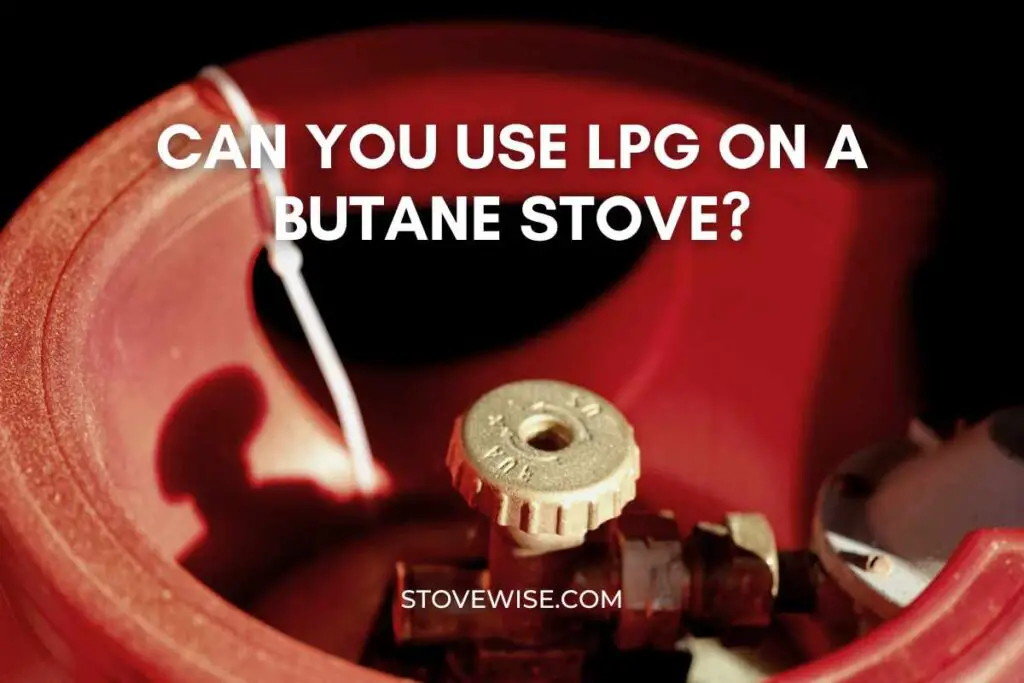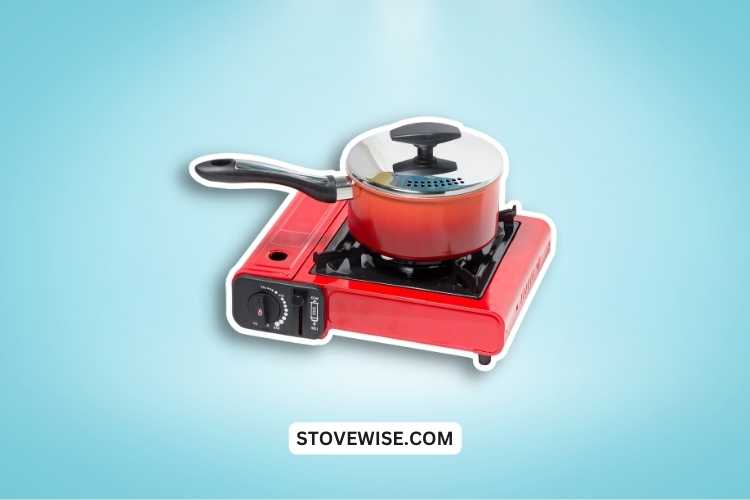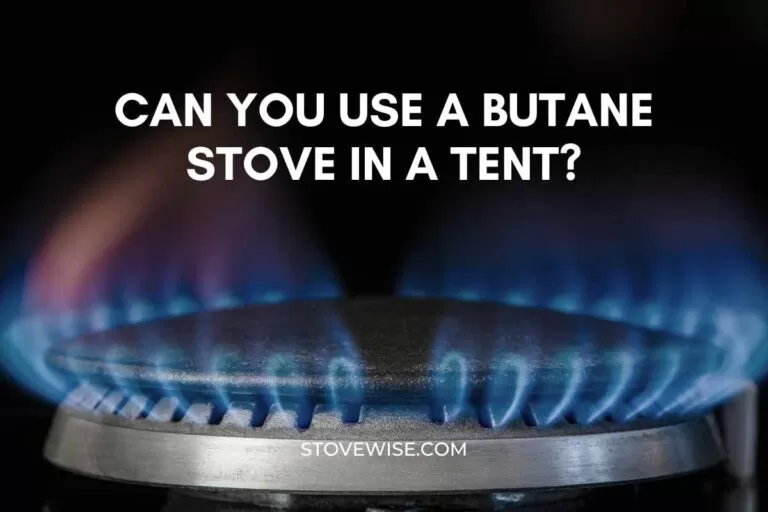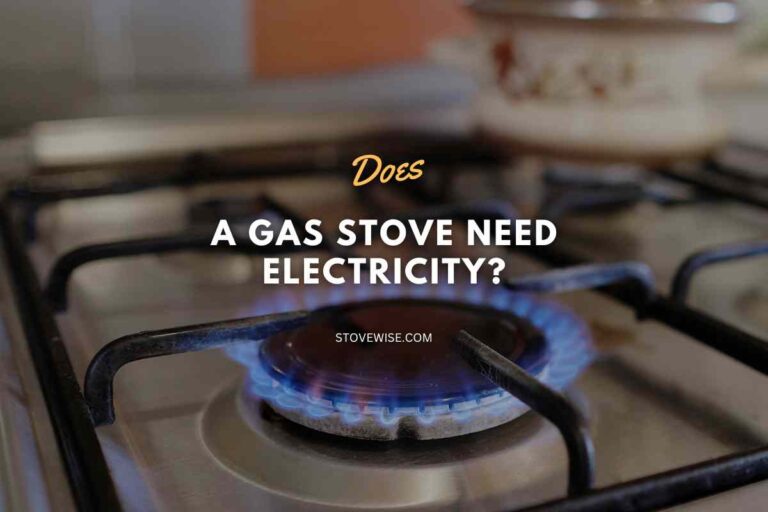Can You Use LPG on a Butane Stove?
The age-old question of whether you can use Liquefied Petroleum Gas (LPG) on a butane stove has been debated among campers, outdoor enthusiasts, and emergency preparedness experts for years. If you’ve ever found yourself in a situation where you have an LPG cylinder but only a butane stove, you’re not alone.
Can You Use LPG on a Butane Stove?
LPG can be used on a butane stove, however, it’s crucial to understand the potential risks and take the necessary precautions to ensure safety and optimal performance. If you frequently need to use LPG, consider investing in a dual-fuel stove or an LPG-specific stove to eliminate the need for any modifications or special precautions.
Continue reading to explore the compatibility of LPG with butane stoves, the precautions to take when using them interchangeably, and the reasons why you might want to consider making the switch.

Contents
Can LPG Be Used on a Butane Stove?
While it is technically possible to use LPG on a butane stove, it’s essential to understand the differences between the two fuels, the potential risks, and the precautions necessary to ensure safe and optimal performance.
LPG, or Liquefied Petroleum Gas, is a mixture of propane and butane, with propane typically being the dominant component. Butane stoves, on the other hand, are designed specifically for use with butane, a single hydrocarbon gas.
The properties and pressure requirements of these fuels differ, which can impact their compatibility with various stoves. Also, check our guide about storing opened butane canisters.
Understanding the Differences Between LPG and Butane
Before diving into whether or not you can use LPG on a butane stove, it’s essential to understand the differences between the two types of fuel.
Both LPG and butane are hydrocarbon gases used as fuel sources for various applications, including heating, cooking, and even refrigeration. However, there are some key distinctions between the two that affect their compatibility.
LPG Composition and Properties
LPG is a mixture of propane and butane, with propane being the dominant component. The exact ratio of propane to butane in LPG can vary, but it usually contains around 60-70% propane.
LPG has a lower boiling point than butane, allowing it to vaporize more easily in colder temperatures. This characteristic makes LPG suitable for use in colder climates, where butane may struggle to provide consistent performance.
Butane Composition and Properties
Butane, on the other hand, is a single hydrocarbon gas. It has a higher boiling point than propane, which means it requires higher temperatures to vaporize.
Butane is typically used in portable stoves, heaters, and lighters due to its convenient canister storage and easy-to-use design.
Precautions to Take When Using LPG on a Butane Stove
If you decide to use LPG on a butane stove, it’s crucial to take certain precautions to ensure the safety of both yourself and the equipment.
Use a Compatible Regulator and Hose
One of the most important things to consider when using LPG on a butane stove is the regulator and hose.
A butane regulator is designed to handle the higher pressure of butane, so it may not be compatible with the lower pressure of LPG. To ensure safety and proper functionality, you’ll need to purchase an LPG-compatible regulator and hose.
Monitor the Flame
When using LPG on a butane stove, be sure to monitor the flame closely. LPG has a higher energy content than butane, which means it can produce a more intense flame.
This can lead to overheating and potentially damage the stove or cause a fire. Keep an eye on the flame, and adjust the heat settings accordingly.
Ventilation
It’s essential to ensure proper ventilation when using any gas-fueled stove, but it’s even more critical when using LPG on a butane stove.
LPG has a higher risk of incomplete combustion, which can result in the production of carbon monoxide, a dangerous, odorless gas.
Make sure you’re using the stove in a well-ventilated area and have a carbon monoxide detector nearby.
Reasons to Consider Using LPG on a Butane Stove
Despite the precautions needed, there are several reasons why you might want to consider using LPG on a butane stove:
- Availability of Fuel: In some areas, LPG might be more readily available than butane. In emergency situations or when traveling to remote locations, having the flexibility to use LPG on a butane stove can be a significant advantage.
- Improved Performance in Cold Weather: As mentioned earlier, LPG has a lower boiling point than butane, allowing it to vaporize more easily in colder temperatures. If you plan to use your stove in a cold environment, LPG might provide a more reliable performance than butane.
- Cost-Effectiveness: In some cases, LPG can be more cost-effective than butane, especially when purchased in bulk. Switching to LPG could potentially save you money in the long run, depending on the local fuel prices.
Alternatives to Using LPG on a Butane Stove
If you’re not comfortable with the idea of using LPG on a butane stove, there are a few alternatives to consider:
1. Dual-Fuel Stoves
Dual-fuel stoves are designed to work with both butane and propane, eliminating the need for any modifications or special precautions. These stoves typically come with a built-in regulator that can handle both fuel types, making them a convenient and safe option.
2. LPG-Only Stoves
If you find that you prefer using LPG as a fuel source, you can always invest in an LPG-specific stove. These stoves are designed to work optimally with propane, ensuring consistent performance and reducing the potential risks associated with using LPG on a butane stove.
Conclusion
While it is possible to use LPG on a butane or propane stove, doing so requires certain precautions to ensure safe and optimal performance.
If you choose to go this route, make sure to use a compatible regulator and hose, monitor the flame closely, and ensure proper ventilation.
Alternatively, consider investing in a dual-fuel or LPG-only stove to eliminate the need for any modifications.
Regardless of your decision, always prioritize safety and follow the manufacturer’s guidelines when using any gas-fueled appliance.
FAQs
Can I Use Propane on a Butane Stove?
Propane and butane have different properties and pressure requirements, so using propane on a butane stove is not recommended without proper adjustments. You’ll need a compatible regulator and hose designed for propane to ensure safety and functionality.
Can I Convert My Butane Stove to an Lpg Stove?
Yes, it’s possible to convert a butane stove to an LPG stove with the help of a conversion kit. These kits typically include an LPG-compatible regulator and hose. However, always consult the manufacturer’s guidelines and seek professional assistance if necessary to ensure a safe and successful conversion.
What Are the Advantages of Using Lpg over Butane?
LPG offers better performance in colder temperatures due to its lower boiling point, making it a more reliable option in cold environments. Additionally, LPG might be more readily available and cost-effective in some areas compared to butane.
Is It Safe to Use LPG on a Butane Stove Indoors?
While it is possible to use LPG on a butane stove indoors, you must take certain precautions to ensure safety. Make sure to use a compatible regulator and hose, monitor the flame closely, and ensure proper ventilation to minimize the risk of carbon monoxide poisoning. Ideally, invest in a dual-fuel or LPG-specific stove for indoor use to minimize risks.
Can I Use a Butane Stove at High Altitudes?
Butane stoves can be used at high altitudes, but their performance may suffer due to reduced air pressure. LPG, with its higher propane content, might offer better performance at higher altitudes. However, it’s essential to use a compatible regulator and hose if you choose to use LPG on a butane stove at high elevations.






